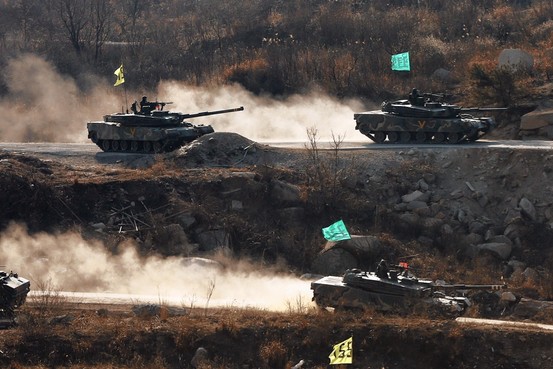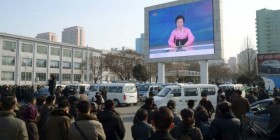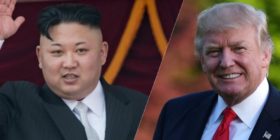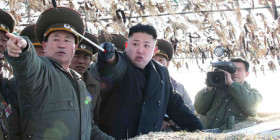South Korean tanks took part in drills northeast of the capital on Wednesday. North Korea has broadcast a barrage of threats and invective as military exercises proceeded in the South.
SEOUL—North Korea said it was severing a military hot line with South Korea and showered invective on Seoul’s new leader, even as Seoul pursued plans to improve relations with the North, including the resumption of reunions of families separated by the Korean War.
The moves on Wednesday reinforced the challenges facing President Park Geun-hye as she tries to make good on her election pledge to foster better relations with Pyongyang.
North Korea said it suspended the last remaining official phone line with the South, blaming the military drills between South Korea and the U.S. Those drills, along with what North Korea said is the South’s disrespect for its leadership, have brought blistering threats from Pyongyang against Seoul and Washington.
A few weeks earlier, North Korea suspended two other direct phone lines, one that was connected to the U.S. military command in South Korea and the other a Red Cross humanitarian link.
The military hot line cut on Wednesday was used to coordinate when South Korean managers travel to an industrial park inside North Korea each day, raising questions over whether the jointly run park, the Kaesong Industrial Complex, will continue to operate normally.
North Korea has severed these phone links before, only to reinstate them when tensions have cooled down. A Unification Ministry official in the South said three telephone lines remain between the two countries, but those were used only for exchanging information on private airline traffic.
Pyongyang’s state media took direct aim at Ms. Park on Wednesday for her recent calls on North Korea to focus on the livelihoods of its people rather than its weapons program.
Her remarks were an “unpardonable provocation,” a spokesman for a body that deals with inter-Korean issues said, the Korean Central News Agency reported.
“If she keeps to the road of confrontation…she will meet a miserable ruin,” the North’s KCNA news agency said.
Earlier Wednesday, South Korean government officials laid out new policy plans for the year to support Ms. Park’s attempt to improve North-South ties while still standing firm against threats.
The plans include continuing humanitarian aid at government and private levels and seeking talks with the North on resuming a variety of exchange programs, including the reunion of separated families.
Some 82,000 South Koreans, mostly in their 70s or older, are registered with the government as having parted from their families in the North following the 1950-53 Korean War. Since the first family reunion events in 2000, the two countries held such meetings once every year until they were suspended in 2010 by then-President Lee Myung-bak after two attacks by North Korea that killed 50 South Koreans.
“The new government’s foreign and North Korea policy is designed to establish peace and a foundation for reunification by building and restoring trust between the South and the North upon firm [national] security,” Ms. Park said.
It is uncertain if Ms. Park’s approach will work, analysts said. “Following a series of missile launches and nuclear tests, North Korea has become overconfident,” said Paek Seung-joo, a senior researcher at the Korea Institute of Defense Analyses in Seoul. “The North’s enhanced military power and harder stance is a key stumbling block to resuming inter-Korean rapprochement.”
South Korean government officials have said that the North’s personal barbs against Ms. Park won’t have any impact on how the South approaches inter-Korean relations.
Despite the recent tensions, South Korea last week approved the first shipment of humanitarian aid to North Korea since Ms. Park took office, allowing a local charity group to send tuberculosis medicine.
The Seoul government provided 2.3 billion won ($2.1 million) in humanitarian aid to North Korea in 2012 through international organizations such as the World Health Organization. Separately, private aid organizations in South Korea shipped 11.8 billion won of food and other aid products to North Korea last year.
In another move aimed at improving bilateral relations, Seoul also said last week it is ready to talk with Pyongyang about resuming tours to the Mount Kumgang resort in North Korea if the safety of travelers can be guaranteed.
The resort, built by South Korea’s Hyundai conglomerate, opened in 1998 as a symbol of reconciliation between the two Koreas and had been a major source of cash for the impoverished North. Trips were stopped after the shooting death of a South Korean civilian in 2008.






Leave a reply